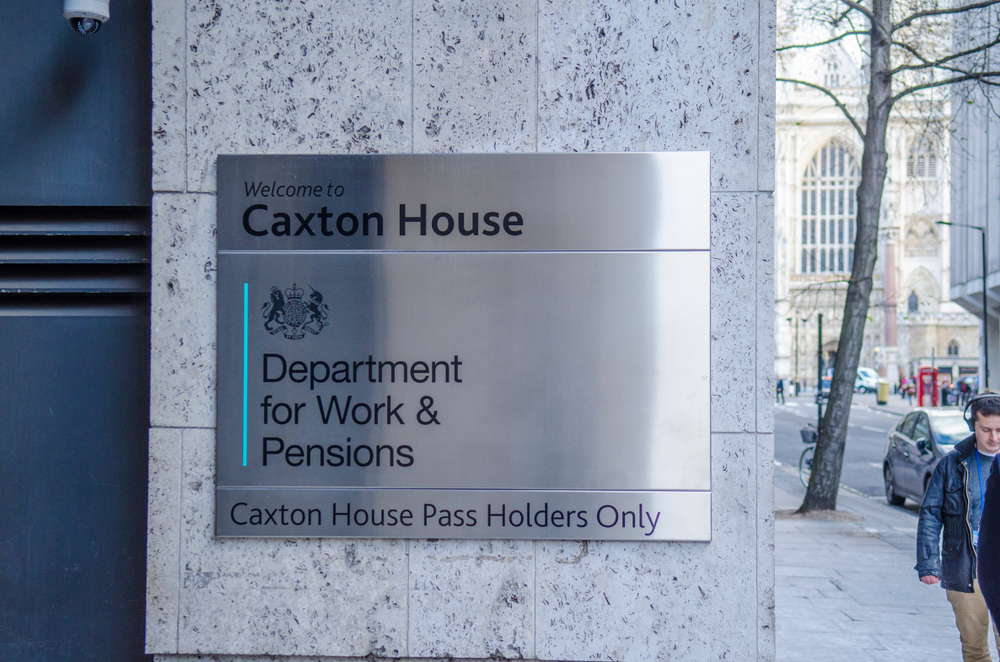The average pensioner income after housing costs (AHC) increased to £361 a week in 2020/21, up from £333 in 2019/20, although industry experts have warned that gaps remain, with further pressure on pensioner incomes likely over the coming year.
Figures from the Department for Work and Pensions (DWP) revealed that the average income for pensioner couples was £511 per week, more than twice that of single pensioners, who had an average income of £246 per week.
Younger pensioners had higher average incomes than older pensioners, with an average of £393 weekly income AHC for under-75s, compared to £328 for over-75s, which the DWP highlighted as “statistically significant”.
The figures also suggested that the role of occupational pensions is increasingly important, with the proportion of the pension made up by occupational pension savings increasing 11.8 per cent, from £169 to £189.
The number of pensioners receiving income-related benefits had fallen, with 20 per cent in receipt of income-related benefits in 2020/21, compared to 31 per cent in 2009/10.
The findings were supported by data from the Households Below Average Income, which revealed that the position of pensioners has continued to improve relative to that of the working age population, with 15 per cent of pensioners on a relatively low income of below 60 per cent of median AHC in 2020/21, down from 18 per cent in 2019/20.
Improvements for working age adults stalled, however, with the percentage of adults on a relatively low income remaining at 20 per cent, causing the gap in poverty rates between the two groups to grow significantly.
This has prompted concerns, as LCP partner, Steve Webb, warned: "If this gap were to persist as we emerge from the pandemic, this is likely to add further fuel to the debate about the relative fairness of the system to low income workers and pensioners."
Webb also raised concerns over the fact that company pensions made a major contribution to the income rise enjoyed by pensioners.
"Whilst this is great news for those who have benefited from them, generous company pensions will increasingly be a thing of the past for those working in the private sector," he explained.
“These figures are a reminder of how big a gap will have to be filled by defined contribution (DC) pensions, and as things stand there is little sign that DC pension pots are anywhere near big enough to meet this need”.
Adding to this, Hargreaves Lansdown senior pensions and retirement analyst, Helen Morrissey, noted that whilst this is a "bumper pay increase for pensioners", the overall figures mask some major differences in incomes, with "enormous numbers of pensioners having to get by on less".
She continued: "Single women in particular are more likely to be reliant on benefits income – notably the state pension which makes up a large part of their income. However, auto-enrolment will mean increasing numbers get to retirement with some occupational pension income in future.
"We’ve also seen a huge decrease in the numbers claiming income related benefits. While this is a sign of improved pensioner incomes which is a huge positive, we should also be alert to the numbers of people not claiming what they are owed and suffering financially as a result.
"We know that benefits such as Pension Credit remain hugely underclaimed and more work needs to be done to make sure those who are entitled claim what they are owed.”
These worries were echoed by St James’s Place divisional director, retirement and holistic planning, Claire Trott, who noted that the gender pension gap for single people has remained significant since the start of the pensioner income series in 1995, and "hasn’t shown any signs of meaningfully reducing over these years".
“On top of this, 60 per cent of income among single female pensioners was from benefit income," she continued. "This again shows the continued difference in the way in which males and females benefit from pension savings in their lifetime.
"We need to do more to bring this closer together, both through education in savings from an early age, pension savings equality and making sure that on divorce pensions are taken into account in all cases and not ignored."
Latest News
-
OBR analysis reveals potential impact of salary sacrifice changes
-
Strong funding levels continue as endgame landscape reshaped by innovation
-
Harwich Haven Authority Pension Fund finalises £45m buy-in with Royal London
-
GAD publishes LGPS gender pension gap reporting guidance
-
DB scheme funding levels continue to improve heading into 2026
-
News in brief - 6 February 2026
Private markets – a growing presence within UK DC
Laura Blows discusses the role of private market investment within DC schemes with Aviva Director of Investments, Maiyuresh Rajah
The DB pension landscape
Pensions Age speaks to BlackRock managing director and head of its DB relationship management team, Andrew Reid, about the DB pensions landscape
Podcast: From pension pot to flexible income for life

Podcast: Who matters most in pensions?

In the latest Pensions Age podcast, Francesca Fabrizi speaks to Capita Pension Solutions global practice leader & chief revenue officer, Stuart Heatley, about who matters most in pensions and how to best meet their needs
© 2019 Perspective Publishing Privacy & Cookies










Recent Stories